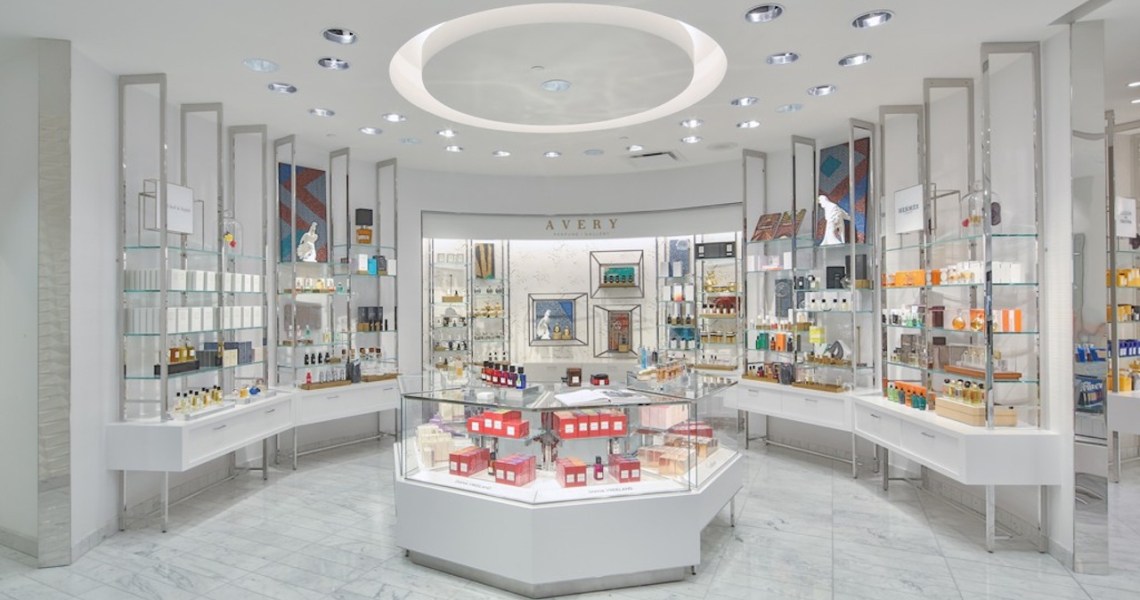Airport terminals teeming with crowds. Hour-long lines to get through security. Canceled or delayed flights and baggage claims studded with lost luggage.
Summer 2022 was the season of “revenge travel,” a collective mindset of wanderlust travelers making up for lost time, only to be hit with utter chaos caused by travel industry complications. But for all the headaches and mayhem, at least one industry benefited greatly from the recent travel boom: travel retail. Even though the number of overall travelers did not reach pre-pandemic levels, according to the International Air Transport Association, the beauty industry reported strong sales in correlation to increased passenger traffic.
“People are excited to be traveling again. We noticed travelers are more confident about making purchases, as they enjoy being on the move again having been deprived of the opportunity during the pandemic,” said Marianna Fellmann, head of group corporate communications at L’Occitane Group. “At a global level, beauty travel retail is bouncing back, but realistically it will take time to reach pre-pandemic sales levels. However, L’Occitane Travel Retail has witnessed a strong recovery in the second quarter [of fiscal 2023].”
In L’Occitane Group’s fiscal year 2022, the travel retail channel grew by double-digits and continued to grow in the first quarter of fiscal year 2023, Fellman said. She said L’Occitane Group has been bullish on the channel’s continued growth, especially as travel itself gradually resumes.
For Coty Inc., global travel retail represented 6% of total sales revenue in fiscal year 2022, according to Guilhem Souche, svp of travel retail for mainland China at Coty Inc. Coty’s travel retail over the past 12-months is “literally flying, with triple-digit growth,” said Souche.
Fragrance is a popular travel retail purchase. According to a report by Research Dive, the global travel retail market is expected to generate a revenue of $225.7 billion from 2022 to 2031, with the fragrance category as the most profitable at $81.4 billion.
But Coty, like many businesses, had to pivot and rethink strategies based on pandemic concerns and challenges. The first move for the beauty giant was to offer a safe shopping experience by launching digitally enabled, touch-less fragrance tester devices at all of its beauty retailers, including dozens of duty-free stores. The tester device also offered the company access to usage data to optimize product positioning and customer experience. Such innovation is expected to attract consumer engagement and bolster travel retail sales.
Ad position: web_incontent_pos1
Meanwhile, L’Oréal-owned YSL Beauty will launch its Scent-Station technology, which uses neuroscience to give personalized fragrance advice, in the Hainan airport at the end of October. L’Oréal Travel Retail also plans to use weather and air quality company BreezoMeter to offer accurate product recommendations for its customers when they travel.
“During the pandemic, fragrance sales were a bright spot for Coty, and this continues today,” said Souche, calling out China, in particular, as a market that was impacted by Covid restrictions but has returned to double-digit growth for the company. Every market in APAC has delivered strong double-digit growth, he said. “We are outperforming in a market that is proving to be resilient in turbulent market conditions — something we call the ‘fragrance effect.’”
Coty does not break out fragrance sales in its earnings, but past quarterly earnings reports indicated that prestige fragrances, including the Marc Jacobs Daisy line and Gucci, remained strong, while mass fragrances did not. According to NPD data, prestige fragrance sales declined 8% year-over-year in 2020 and rebounded by double-digits in 2021.
To compound on the fragrance effect’s success and capitalize on travel’s roaring comeback, Coty Inc. further invested in travel retail and expanded its offerings, introducing prestige makeup and skin care to all global markets between 2021 and 2022. New offerings reflecting emerging trends from the Covid-19 pandemic, such as skin care and eco-friendly packaging, are likely to be the next merchandising trends within travel retail.
In a report by Data Bridge Market Research, the skin-care segment of the travel beauty retail market is “expected to reach the highest compound annual growth rate of 6.3% in the forecast period of 2022 to 2029,” due to an increased awareness about skin health among consumers.
Ad position: web_incontent_pos2
“The travel sector is benefiting from an ongoing surge in international travel, giving consumers more opportunities to interact with our brands. Our prestige brands are doing extremely well, and there is a clear opportunity for us to further expand into skin care,” said Souche, naming Lancaster as a prime example of a prestige brand performing well. Coty relaunched the brand in Hainan to “very strong first-quarter results,” with a plan to expand into mainland China and Korean Duty-Free locations. “The exponential growth of the travel retail market, especially in Asia, represents a huge growth opportunity — especially as the skin-care category is continuing to lead the beauty industry, with the demand mainly driven by this region.”
L’Occitane even came out with new products based on a pandemic trend — specifically, the conscious consumer, Fellmann said. For example, it expanded its travel retail sets with eco-conscious hair-care refills, which it made available globally at travel retail shops. The company opted to add these goods to its travel retail offerings after learning that the pandemic increased consumer interest in sustainability and mindful consumption. Eighty-six percent of travelers say sustainability efforts have a positive impact on their perception of a brand, according to M1nd-set, a travel research agency.




